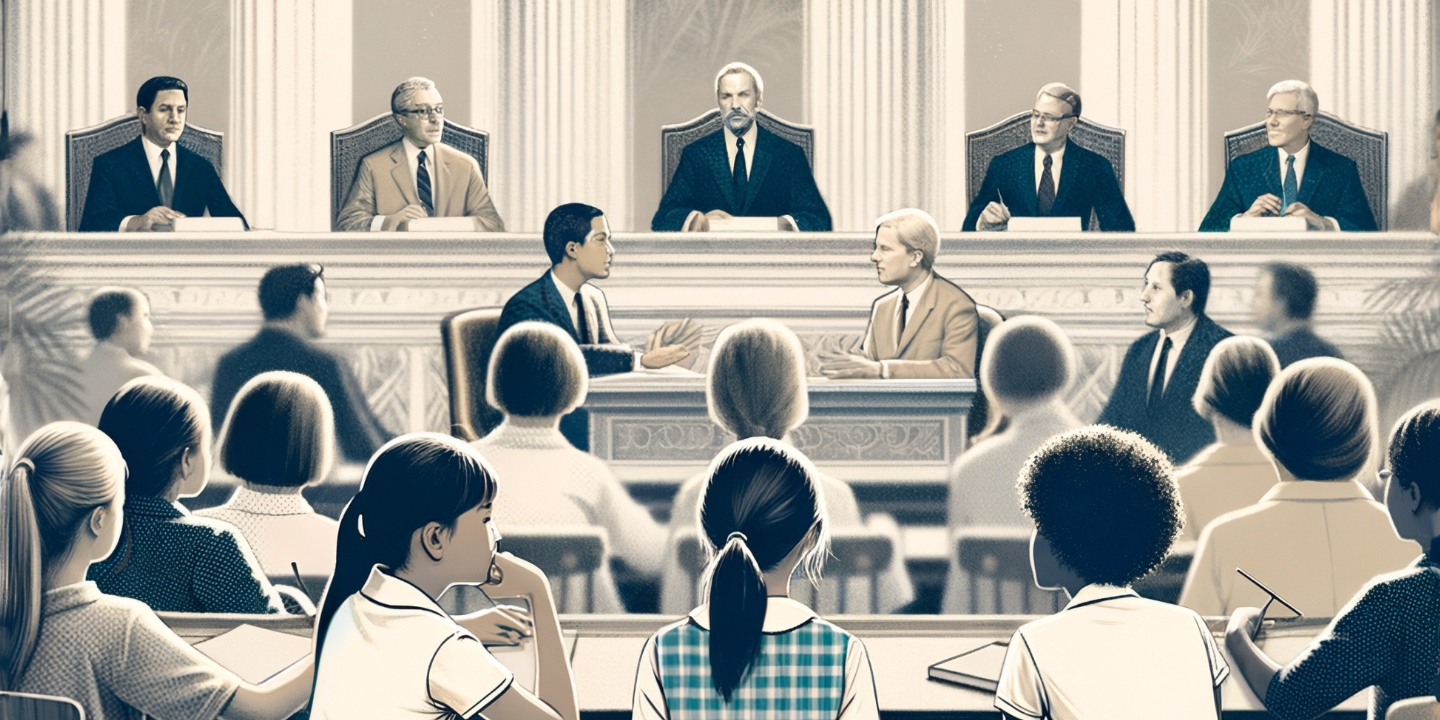
Are we preparing girls for a world they cannot change?
Research 7 Mar 2024 7 minute readInternational studies show that girls are more politically informed and active at school than boys, and more concerned about issues like the environment and equal rights. Despite this, girls show a lack of political ambition. This should concern all of us.
The International Association for the Evaluation of Educational Achievement (IEA) recently released the results of the world’s largest and most influential international study of civic and citizenship education, the International Civic and Citizenship Education Study (ICCS) 2022 International Report: Education for Citizenship in Times of Global Challenge
ICCS 2022 collated and analysed data from 82,000 eighth-grade students, 40,000 teachers, and 3,400 school principals from 22 countries. ACER was the international study centre for ICCS 2022, 2016, and 2009, working with the IEA, Roma Tre University, and LUMSA University. The study includes the findings from a student assessment, and surveys of teachers, students, and school and system leaders.
While the report revealed an overall decrease in civic knowledge between 2016 and 2022, participating female students consistently outperformed boys on civic knowledge – and the difference is significant.
ICCS 2022 included a test of students’ civic knowledge and understanding across four key civic areas: institutions and systems, principles, participation, and roles and identities.
It found girls outperformed boys on civic knowledge and this trend has been consistent since 2009, with the difference statistically significant in 18 of the 22 participating countries.
Across all countries, girls outperformed boys in ICCS 2022 by about one-third of a level on the ICCS scale – an international average score of 521 to 495. Girls were more likely than boys to correctly answer questions about:
- the independence of statutory authorities and public trust
- globalisation and risk for developing countries
- the main role of a legislature/parliament
- voting and representation
- the behaviours of those who identify as global citizens.
Girls were also more supportive of equal rights than boys, and the differences were significant in almost every participating country.
Girls were more likely than boys to endorse men and women’s equal opportunity to take part in government, politics and the workforce, and to perceive men and women to have equal ability. They were more likely than boys to endorse equal rights for immigrants including access to education, right to practice customs, right to vote in elections and contribution to society. Girls were more likely than boys to endorse the rights of all ethnic groups to education, employment, respect, political participation, and access to the same rights as others.
Girls were more likely to express support for environmental protection than male students, and the difference was statistically significant. They also reported more concern about global environmental threats than boys, and the difference was significant across most participating countries.
Girls’ citizenship self-efficacy was equal to that of boys; that is their ability to harness and enact their civic knowledge, values, and skills.
These results suggest that for the participating girls, there is likely no impediment to their civic participation, based on perceptions of their ability.
The study also showed girls were more willing than boys to participate in school-based civic activities, such as voting for class representatives, but do not plan to be politically active.
When comparing responses for expected active political participation by gender, scores were significantly higher for male students than female students in 12 countries. Girls were less likely to report expecting to join a political party or a trade union, stand as a candidate in an election, or join an organisation for a political or social cause.
While ICCS doesn’t explain why girls responded this way, other studies have identified a lack of parental encouragement to consider politics as a career, a lack of perceived ability and skills, and a perception of politics as a male-dominated space and political leadership as a `man’s world’.
In fact, women’s participation in civic institutions has declined globally. Of the 22 countries in ICCS 2022, none had true gender equity in parliamentary representation. Women are underrepresented in all levels of decision-making worldwide and comprise only 26.5 per cent of members of parliament globally.
We are not preparing girls and boys for a world with equal access and opportunities to participate in civic life. In fact, the Global Gender Gap Report 2023 estimates that it will take 131 years to close the global gender gap, when considering the current pace of progress.
Given the evidence, we must consider how to prepare students for the world we want, not the world we have. Schools must acknowledge the large disparities between men's and women’s civic participation and seek to prepare all students to address this injustice.
It’s time we removed the barriers and built a pipeline to public life and politics for girls and women, as a priority for education, community, international development and social good.
About the author:
Rachel Parker is the co-author of the Global Citizenship Education (GCED) Quality Framework, developed by the Australian Council for Educational Research (ACER) and Asia Pacific Centre of Education for International Understanding (APCEIU) under the auspices of UNESCO.